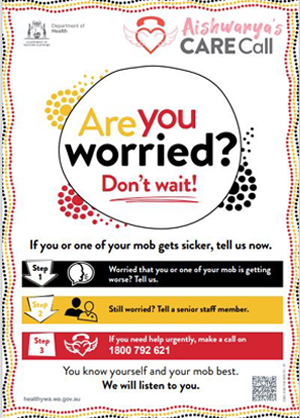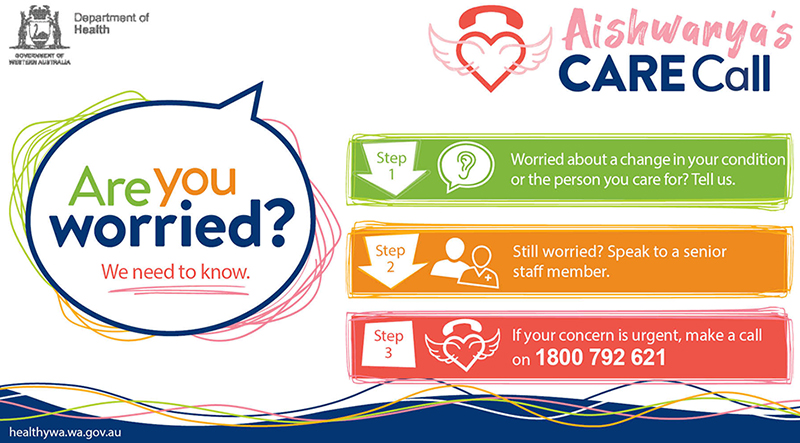Aboriginal services
Coming to a large hospital, especially from a rural or remote area, can be a difficult experience. We want to make sure your time with us is positive and culturally respectful. KEMH has an Aboriginal Liaison Officer (ALO) available to provide support to you during your stay at KEMH. Our ALO can assist by talking to staff, including doctors and midwives, on your behalf if you wish. They can also assist you in linking up with other services that might be able to help you when you are ready to go home.
Services we offer
- Support for patients either at KEMH or at Agnes Walsh House accommodation.
- Providing a safe space for Aboriginal women at KEMH by encouraging activities in Ngalla Mia for women to get to know one another.
- Liaison and advocacy for Aboriginal patients with health professionals, external agencies and other consumers.
- Support and encouragement for women who are away from home.
 Accessing our services
Accessing our services
If you would like to access our Aboriginal Liaison Officer speak to your health care team.
Resources for Aboriginal Women are available through the WNHS Library (external site).
Raising concerns while in hospital
We understand you may have some questions about coming into hospital. Our staff will try to make you feel as comfortable as possible and are happy to answer any questions you may have during your stay
If you are one of your mob in hospital gets sicker, tell us. Call 1800 792 621.
Raising concerns – making a CARE Call / Aishwarya's CARE Call

Call and Respond Early (CARE) gives you a pathway to call for assistance when you are concerned about your health or that of someone you care for.
Patient safety and wellbeing is an essential part of what we do. At KEMH we provide a clear pathway for when a patient or family member are really concerned about the health of someone they care for.
Take these steps
- Use the call bell or go to the nurses’ station and talk to your nurse, midwife or doctor regarding your concerns.
- If you’re still concerned, ask to speak to the nurse or midwife in charge of the shift.
- If you think it’s urgent or remain concerned and feel that you have not had an appropriate response, call 1800 792 621. You will need to provide the following information:
- Name of patient
- Reason for the call
- Ward and room
When shouldn't I make a CARE Call?
If you have a complaint or feedback about something other than the urgent clinical concerns about a patient, please speak to your nurse or visit our Compliments and complaints.
CARE Call in other languages
Simplified Chinese - CARE Call (PDF)

